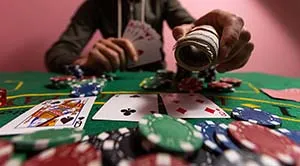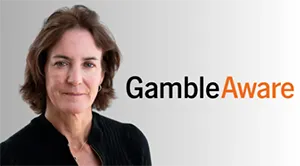 The annual Treatment and Support Survey commissioned by the charity GambleAware and conducted by YouGov has found that as many as 1.65 million children across Great Britain live with family members who are struggling with gambling harm. These children, in contrast to under-18s who reside in households not impacted by problematic wagering, are four times more likely to become victims of problem gambling themselves.
The annual Treatment and Support Survey commissioned by the charity GambleAware and conducted by YouGov has found that as many as 1.65 million children across Great Britain live with family members who are struggling with gambling harm. These children, in contrast to under-18s who reside in households not impacted by problematic wagering, are four times more likely to become victims of problem gambling themselves.
The Figures
 More than 18,000 individuals took part in the survey, and nearly 20% of participants told researchers they used to be affected others when they were under the age of 18, i.e. someone in their household was a problem gambler at the time. In most cases (74%), the household member who gambled was their parent.
More than 18,000 individuals took part in the survey, and nearly 20% of participants told researchers they used to be affected others when they were under the age of 18, i.e. someone in their household was a problem gambler at the time. In most cases (74%), the household member who gambled was their parent.
A reported 8% of those who were impacted by the gambling issues of another person prior to turning 18 were experiencing gambling harm at the time of the survey, in contrast to the 2% of problem gamblers who said they were not affected others when they were children.
Based on the above percentages, an estimated 4.5 million people in GB are affected others, and 1.65 million are children. In addition, around 1.27 million children live in homes with at least one individual who is classified as being at risk of falling victim to gambling-related harm.
Other concerning data has to do with the long-term consequences of gambling. As it stands, the figures show that 13% (6.7 million) of GB adults have gambled in the past, and 0.3% (130,000) have a Problem Gambling Severity Index score of 8+. In other words, they are still experiencing adverse consequences due to their past gambling. Additionally, a total of 1.2 million past gamblers are tempted to begin gambling again.
How to Address the Issues Highlighted by the Survey
 GambleAware Chief Executive Zoë Osmond said that the concerning figures are attributed to the normalisation of gambling in Britain. She also stressed that, as anyone could be affected by gambling-related harms, it was crucial for the stigma that problem gambling is often met with to be addressed.
GambleAware Chief Executive Zoë Osmond said that the concerning figures are attributed to the normalisation of gambling in Britain. She also stressed that, as anyone could be affected by gambling-related harms, it was crucial for the stigma that problem gambling is often met with to be addressed.
“We also need to go further to protect people from experiencing gambling harms in the first place,” she continued, highlighting the need for a “government let approach” and for more resources to be put toward prevention and treatment. The promotion of gambling should also be subject to stricter regulation, according to Ms Osmond. As stressed by GambleAware, such restrictions could come in the form of prohibiting gambling ads at sports events, banning the airing of gambling ads on television prior to the watershed, and mandating better health warnings on any marketing tied to gambling.
Dame Rachel de Souza, Children’s Commissioner for England, also commented on the survey’s findings. She said she welcomed how gambling was increasingly acknowledged as a serious public health issue but also wished to see a greater focus be placed on how gambling affected children and young people. Ms de Souza also expressed concern about the “new, easily accessible forms of gambling” that can be found online, seeing as they masked the potential risks of gambling and were becoming a part of children’s everyday lives.
“If we allow gambling to be normalised for young people through continued exposure to advertising and gambling activities in online games, we risk a long-term impact on their lives – on their mental or physical health, relationships or financial wellbeing,” she concluded.
- Author


